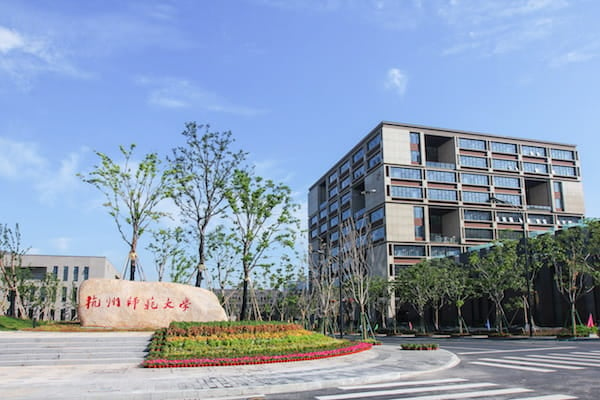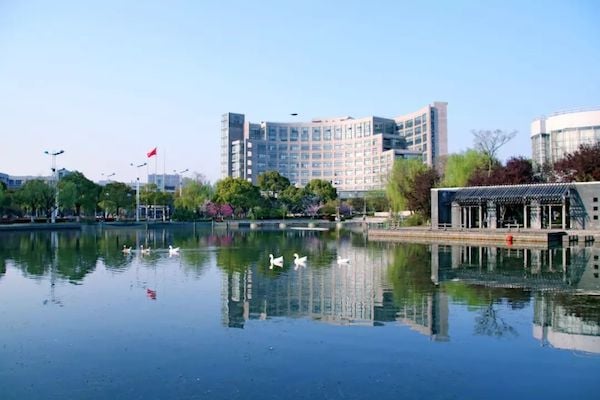Central China Normal University
 |
 |
 |
 |
Introduction to Central China Normal University
Central China Normal University (华中师范大学, CCNU) is located in Wuhan City, Hubei Province, on Guizi Hill on the shore of Wuchang South Lake, covering an area of more than 1.2 million square meters. CCNU is a key comprehensive teacher-training university directly under the Ministry of Education, a key university under the national “211 Project”, a university under the national “985 Advantageous Discipline Innovation Platform” for teacher education, and one of the first universities included in the national “Double First Class” construction.
CCNU has a long history of operation, based on the Wenhua College University Division founded in 1903 (started as Wenhua College in 1871, renamed as Huazhong University in 1924), China University founded in 1912, and Central Plains University College of Education founded in 1949, public Huazhong University was established in 1951, converted into Huazhong Higher Normal School in 1952, and named as Huazhong Normal College in 1953. In 1993, Comrade Jiang Zemin wrote an inscription for the 90th anniversary of the university: “Develop the cause of teacher education and improve the cultural quality of the nation”. During its more than 100 years of development, the university has not only inherited the essence of traditional Chinese culture, but also absorbed the nutrients of foreign culture, and carried forward the tradition of revolutionary culture and education, forming the spirit of “loyalty and elegance, simplicity and perseverance”, and training more than 300,000 outstanding talents for the country.
CCNU has 28 teaching and research units and 79 undergraduate majors enrolled nationwide, with a higher education system ranging from undergraduate to master, doctoral and post-doctoral students, and from full-time to adult education. At present, there are more than 31,000 full-time students, including more than 18,500 undergraduates, 12,000 postgraduates and 1,100 international students. There are more than 3,500 faculty members, 1,905 full-time teachers, including 1,297 professors and associate professors, 352 doctoral supervisors, full-time and part-time academicians, senior professors of humanities and social sciences, overseas high-level talent project entrants, “Ten Thousand People Plan” entrants, “National Teaching Teachers”, “100 Famous Teachers” and “100 Famous Teachers”. The university has 65 national talents such as full-time academicians, senior professors of humanities and social sciences, overseas high-level talent project inductees, “Ten Thousand Talents Program” inductees, “National Teaching Master”, “Hundred Million Talents Project” national candidates, National Outstanding Young Scientist Fund recipients, National Excellent Young Scientist Fund recipients.
CCNU has 2 national “double first-class” construction disciplines, 8 national key disciplines, 1 national key (cultivation) discipline, and 22 first-class key disciplines in Hubei Province. There are 18 post-doctoral stations in Chinese language and literature and physics, 21 first-level disciplines authorized for doctoral degree, 32 first-level disciplines authorized for master’s degree, 128 second-level disciplines authorized for doctoral degree, 172 second-level disciplines authorized for master’s degree, 1 professional degree category for doctoral degree and 18 professional degree categories for master’s degree.
CCNU has 67 scientific research institutions, laboratories and research institutes (institutes and centers), including 3 key research bases of humanities and social sciences of the Ministry of Education, 1 key research base for the construction of national teaching materials, 1 collaborative innovation center jointly built by the Ministry and the Province, and 35 other key research bases of humanities and social sciences at the provincial and ministerial levels. In addition, the university has 1 national engineering laboratory, 1 national engineering technology research center, 2 national international joint research centers, 3 key laboratories of the Ministry of Education, and 15 other key laboratories and key research bases at provincial and ministerial levels. The university publishes 26 kinds of professional journals regularly.
CCNU strives to embody the modern talent cultivation ideology of “thick foundation, broad caliber, high quality and innovation”, combining general education and professional education, and organically combining students’ overall development and individual development. The university has 2 national bases for cultivating talents and scientific research in basic disciplines of arts and sciences (history and physics), 12 national specialties, 17 national first-class undergraduate majors, 26 national first-class undergraduate courses, 17 brand majors in Hubei Province, and is a university of the National Collaborative Innovation Experimental Base for Teacher Development, a university of the Ministry of Education’s Excellent Teacher Training Program and a pilot university of the Ministry of Education’s Informatization. The graduates have won the favor of employers with their excellent ideological quality, good business quality and comprehensive quality, and the employment rate is stable above 90%, and the university was selected as one of the top 50 universities with typical experience in national graduate employment.In 2013, the Ministry of Education conducted the audit assessment of undergraduate teaching work on the university, and the direction and quality of schooling were fully affirmed.In 2018, the In 2018, the “Reconstruction and Exploration Practice of College Talent Training System with Deep Integration of Information Technology” won the Grand Prize of National Teaching Achievement.
Over the years, nearly 120 student associations of the University have been active on the campus. The “Innovation Cup Science and Culture Festival”, “Shuren Cup Art and Culture Festival”, “Boya Lecture Hall”, “January 2-9 Poetry and Prose Competition “The “Song of Guiyuan” has become a traditional campus cultural activity of the university, which has a great influence in Wuhan and even in the whole country and provides a broad stage for students to grow and become successful. The university has achieved full coverage of campus wireless network and student dormitory air conditioning, and the library has a collection area of 46,857 square meters, with more than 3 million books, and an advanced “campus literature network management and service system”, which provides a strong guarantee for students’ study and life.
CCNU has established close academic ties with more than 150 universities and research institutions in more than 70 countries and regions, including the United States, Russia, Canada, France, the United Kingdom, Australia, Japan and Korea, and a large number of foreign experts and teachers are teaching and lecturing in the university. The number of teachers going abroad for training, attending international conferences and conducting cooperative research has been increasing. We have established four Confucius Institutes with foreign universities and actively sent Chinese teachers and volunteers to teach Chinese abroad and spread Chinese language and culture. We also promote the international mobility of students and send a large number of students to study abroad every year, and our short-term international students come from more than 140 countries and regions around the world.
Campus VR
Teaching Program
![]() ISAC University Teaching Program
ISAC University Teaching Program




